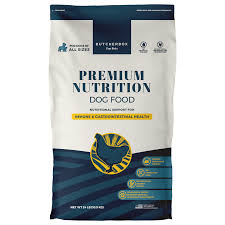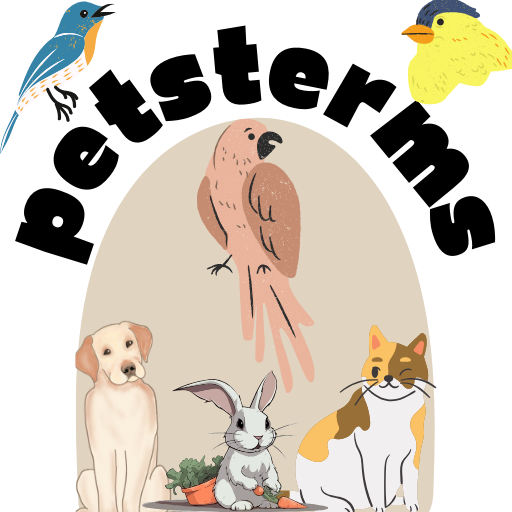
Introduction
Premium dog food refers to high-quality pet food products made from superior ingredients designed to provide balanced nutrition for dogs. Unlike regular dog food, premium options often include higher levels of protein, essential vitamins, and minerals, without fillers or artificial additives. These products are typically developed with a focus on the overall health and wellness of pets.
Why Premium Dog Food is Important
Choosing premium dog food for your pet is crucial for their health and longevity. Premium dog foods are formulated to meet the specific dietary needs of dogs, ensuring they receive the necessary nutrients to maintain energy, support a healthy immune system, and promote overall well-being. High-quality ingredients can prevent health issues such as obesity, allergies, and digestive problems, contributing to a happier and healthier life for your pet.
The Pet Food Market in St. Louis
St. Louis boasts a vibrant pet food market, with numerous local stores, specialty shops, and veterinary clinics offering a wide range of premium dog food options. The city’s pet-friendly community and numerous pet-centric events underscore the importance of providing the best nutrition for pets.
Types and Categories of Premium Dog Food
Dry Dog Food
Dry dog food, also known as kibble, is one of the most popular types of dog food due to its convenience, affordability, and long shelf life. Premium dry dog foods are made from high-quality proteins, grains, vegetables, and fruits, providing a balanced diet that supports your dog’s health.
Wet Dog Food
Wet dog food, or canned dog food, contains higher moisture content and is often more palatable to dogs. Premium wet dog foods are rich in protein and made from whole ingredients like meat, fish, and vegetables, ensuring a nutrient-dense meal for your pet.
Grain-Free Dog Food
Grain-free dog food is designed for dogs with grain allergies or sensitivities. These formulas replace grains with alternative carbohydrates such as sweet potatoes, peas, and lentils. Premium grain-free options provide a balanced diet without the inclusion of common allergens.
Raw Dog Food
Raw dog food, also known as a BARF (Biologically Appropriate Raw Food) diet, includes uncooked meat, bones, fruits, and vegetables. This type of diet aims to mimic what dogs would eat in the wild. Premium raw dog foods are made from high-quality, human-grade ingredients, ensuring safety and nutrition.
Organic Dog Food
Organic dog food is made from ingredients that are grown without synthetic pesticides, fertilisers, or genetically modified organisms (GMOs). Premium organic dog foods provide a natural diet free from harmful chemicals, supporting overall health and wellness.
Limited Ingredient Dog Food
Limited ingredient dog food is formulated with fewer ingredients to minimize the risk of food allergies and sensitivities. Premium options often include a single protein source and a limited number of carbohydrates, ensuring a simple yet nutritious diet for dogs with dietary restrictions.
Prescription Dog Food
Prescription dog food is specially formulated to address specific health issues such as kidney disease, diabetes, or gastrointestinal problems. These diets are recommended by veterinarians and contain therapeutic ingredients to support your dog’s health.
Symptoms and Signs of Poor Nutrition in Dogs
Common Symptoms of Nutritional Deficiencies
- Weight Loss: Unexplained weight loss can be a sign of inadequate calorie intake or nutrient absorption issues.
- Lethargy: Low energy levels and fatigue may indicate a lack of essential nutrients.
- Skin and Coat Issues: Dull coat, dry skin, and excessive shedding can be signs of poor nutrition.
- Digestive Problems: Frequent vomiting, diarrhea, or constipation may result from an unbalanced diet.
Uncommon Symptoms of Nutritional Deficiencies
- Behavioral Changes: Anxiety, aggression, or depression can sometimes be linked to dietary issues.
- Chronic Infections: Recurrent infections may suggest a weakened immune system due to poor nutrition.
- Slow Growth: In puppies, stunted growth and development can be a result of inadequate nutrition.
Signs of Allergies or Sensitivities
- Itching and Scratching: Persistent itching, especially around the ears and paws, can indicate food allergies.
- Ear Infections: Recurrent ear infections might be a sign of a food allergy or sensitivity.
- Gastrointestinal Distress: Chronic gas, bloating, and upset stomach are common in dogs with food sensitivities.
Causes and Risk Factors for Poor Dog Nutrition
Biological Factors
- Age: Nutritional needs vary with age. Puppies, adult dogs, and senior dogs have different dietary requirements.
- Breed: Some breeds are prone to specific health issues that can affect their nutritional needs.
- Metabolic Rate: Dogs with higher metabolic rates require more calories and nutrients.
Environmental Factors
- Living Conditions: Dogs in stressful or unclean environments may have higher nutritional demands.
- Exercise Levels: Active dogs require more calories and nutrients compared to sedentary ones.
Lifestyle Factors
- Diet Quality: Feeding low-quality food lacking essential nutrients can lead to deficiencies.
- Feeding Practices: Irregular feeding schedules and improper portion sizes can affect nutrition.
- Health Conditions: Chronic illnesses or conditions can alter a dog’s nutritional needs.
Diagnosis and Tests for Nutritional Deficiencies
Veterinary Examination
- Physical Exam: A thorough physical examination can reveal signs of nutritional deficiencies.
- History Taking: Veterinarians will ask about the dog’s diet, lifestyle, and any symptoms observed.
Laboratory Tests
- Blood Tests: Blood work can detect deficiencies in essential vitamins and minerals.
- Urinalysis: Analyzing urine samples can provide insights into a dog’s overall health and kidney function.
- Fecal Analysis: Examining feces can reveal parasites or other issues affecting nutrient absorption.
Imaging Tests
- X-Rays: Imaging can help identify underlying health conditions that might impact nutrition.
- Ultrasound: An ultrasound can provide a detailed look at internal organs to check for abnormalities.
Treatment Options for Nutritional Deficiencies
Dietary Changes
- Switch to Premium Dog Food: Upgrading to a high-quality diet can address many nutritional deficiencies.
- Supplements: Adding vitamins, minerals, and other supplements can help balance the diet.
- Special Diets: Prescription diets tailored to specific health conditions can support recovery and health.
Medical Treatments
- Medication: In some cases, medications may be necessary to treat underlying health issues.
- Therapeutic Diets: These are specially formulated diets designed to manage specific medical conditions.
Lifestyle Adjustments
- Regular Exercise: Ensuring adequate physical activity helps maintain a healthy weight and metabolism.
- Routine Check-ups: Regular veterinary visits help monitor and adjust dietary needs as necessary.
Preventive Measures for Dog Nutritional Deficiencies
Balanced Diet
- Premium Dog Food: Ensure your dog receives a balanced diet with high-quality ingredients.
- Variety in Diet: Incorporate different food types to provide a range of nutrients.
Regular Health Monitoring
- Routine Vet Visits: Regular check-ups help detect and address nutritional issues early.
- Weight Management: Maintain an ideal weight to prevent obesity-related health problems.
Education and Awareness
- Stay Informed: Keep up with the latest research and recommendations on dog nutrition.
- Read Labels: Understand the ingredients and nutritional content of your dog’s food.
Personal Stories and Case Studies
Success Stories of Dogs Thriving on Premium Diets
- Bella’s Transformation: A tale of how switching to premium dog food improved Bella’s energy and coat condition.
- Max’s Allergy Relief: How a limited ingredient diet alleviated Max’s chronic itching and ear infections.
Challenges Overcome with Premium Nutrition
- Luna’s Weight Loss Journey: How premium dog food helped Luna shed excess weight and regain her health.
- Buddy’s Recovery from Malnutrition: The story of Buddy’s recovery through a balanced and nutrient-rich diet.
Expert Insights on Premium Dog Food
Veterinarian Recommendations
- Dr. Smith’s Advice: Insights from Dr. Smith on the importance of premium dog food for overall health.
- Nutrition Specialist Tips: Recommendations from a pet nutrition expert on selecting the best food for your dog.
Pet Store Owner Perspectives
- Local Insights: A St. Louis pet store owner’s view on the demand and benefits of premium dog food.
- Trends in Pet Nutrition: Observations on the growing preference for high-quality pet foods among St. Louis pet owners.
Frequently Asked Questions About Premium Dog Food in St. Louis
1. Where can I buy premium dog food in St. Louis?
There are several places in St. Louis where you can purchase premium dog food, including specialty pet stores, veterinary clinics, and even some grocery stores. Popular local options include Four Muddy Paws, Wolfgang’s Pet Stop, and Kennel wood Pet Resorts. Additionally, many online retailers offer delivery services to the St. Louis area, providing convenience and a wide selection.
2. What should I look for in a premium dog food?
When selecting premium dog food, look for high-quality ingredients such as real meat, whole grains, vegetables, and fruits. Avoid products with fillers, artificial preservatives, colors, or flavors. Ensure the food meets AAFCO (Association of American Feed Control Officials) standards for complete and balanced nutrition. It’s also beneficial to choose foods that cater to your dog’s specific needs, such as grain-free options for dogs with allergies or specific formulas for different life stages.
3. How do I transition my dog to a new premium dog food?
Transitioning your dog to a new premium dog food should be done gradually over 7-10 days to prevent digestive upset. Start by mixing a small amount of the new food with your dog’s current food, gradually increasing the proportion of the new food each day. Monitor your dog for any signs of gastrointestinal distress, such as vomiting or diarrhea, and consult your veterinarian if you have any concerns.
4. Is premium dog food worth the extra cost?
Premium dog food often justifies the higher cost due to its superior quality ingredients and balanced nutrition. Investing in premium food can lead to better overall health, fewer visits to the vet, and potentially longer life for your dog. High-quality ingredients are more digestible and provide essential nutrients that support your dog’s immune system, coat health, and energy levels, making it a worthwhile investment in your pet’s well-being.
5. Can my puppy eat the same premium dog food as an adult dog?
Puppies have different nutritional needs compared to adult dogs, requiring higher levels of protein, fat, and certain vitamins and minerals to support their growth and development. Look for premium dog foods specifically formulated for puppies, which are designed to meet these unique needs. Once your puppy reaches adulthood, you can transition them to an adult formula to continue providing balanced nutrition. Always consult your veterinarian for personalized advice on your dog’s diet.
Conclusion
Premium dog food plays a vital role in ensuring the health and well-being of dogs. By choosing high-quality, nutrient-rich diets, pet owners can prevent nutritional deficiencies and related health issues. Understanding the different types and categories of premium dog food, recognizing symptoms of poor nutrition, and seeking expert advice are essential steps in providing the best care for your furry friend.

